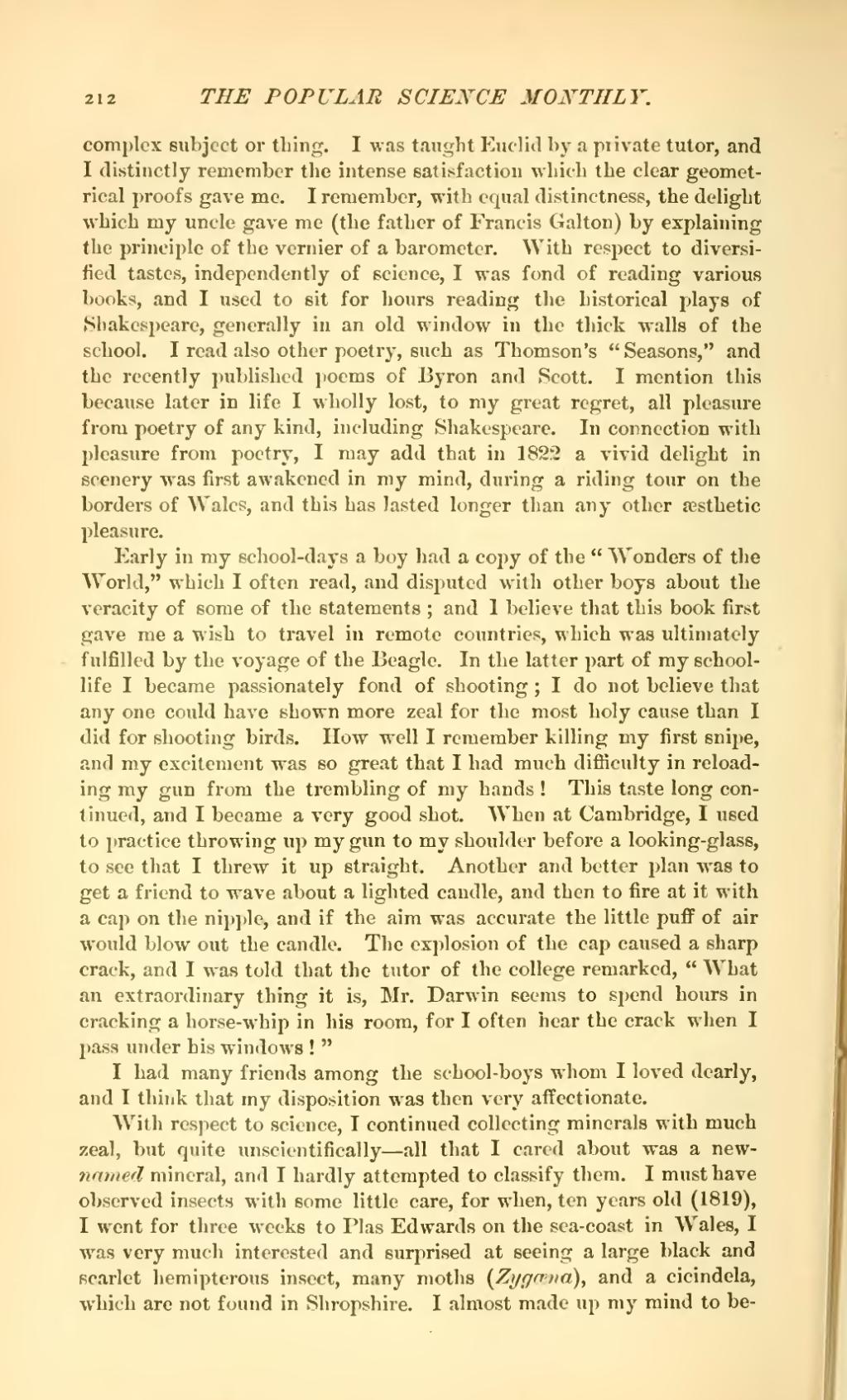complex subject or thing. I was taught Euclid by a private tutor, and I distinctly remember the intense satisfaction which the clear geometrical proofs gave me. I remember, with equal distinctness, the delight which my uncle gave me (the father of Francis Galton) by explaining the principle of the vernier of a barometer. With respect to diversified tastes, independently of science, I was fond of reading various books, and I used to sit for hours reading the historical plays of Shakespeare, generally in an old window in the thick walls of the school. I read also other poetry, such as Thomson's "Seasons," and the recently published poems of Byron and Scott. I mention this because later in life I wholly lost, to my great regret, all pleasure from poetry of any kind, including Shakespeare. In connection with pleasure from poetry, I may add that in 1822 a vivid delight in scenery was first awakened in my mind, during a riding tour on the borders of Wales, and this has lasted longer than any other aesthetic pleasure.
Early in my school-days a boy had a copy of the "Wonders of the World," which I often read, and disputed with other boys about the veracity of some of the statements; and I believe that this book first gave me a wish to travel in remote countries, which was ultimately fulfilled by the voyage of the Beagle. In the latter part of my school-life I became passionately fond of shooting; I do not believe that any one could have shown more zeal for the most holy cause than I did for shooting birds. How well I remember killing my first snipe, and my excitement was so great that I had much difficulty in reloading my gun from the trembling of my hands! This taste long continued, and I became a very good shot. When at Cambridge, I used to practice throwing up my gun to my shoulder before a looking-glass, to see that I threw it up straight. Another and better plan was to get a friend to wave about a lighted candle, and then to fire at it with a cap on the nipple, and if the aim was accurate the little puff of air would blow out the candle. The explosion of the cap caused a sharp crack, and I was told that the tutor of the college remarked, "What an extraordinary thing it is, Mr. Darwin seems to spend hours in cracking a horse-whip in his room, for I often hear the crack when I pass under his windows!"
I had many friends among the school-boys whom I loved dearly, and I think that my disposition was then very affectionate.
With respect to science, I continued collecting minerals with much zeal, but quite unscientifically—all that I cared about was a new-named mineral, and I hardly attempted to classify them. I must have observed insects with some little care, for when, ten years old (1819), I went for three weeks to Plas Edwards on the sea-coast in Wales, I was very much interested and surprised at seeing a large black and scarlet hemipterous insect, many moths (Zygæna), and a cicindela, which are not found in Shropshire. I almost made up my mind to be-
